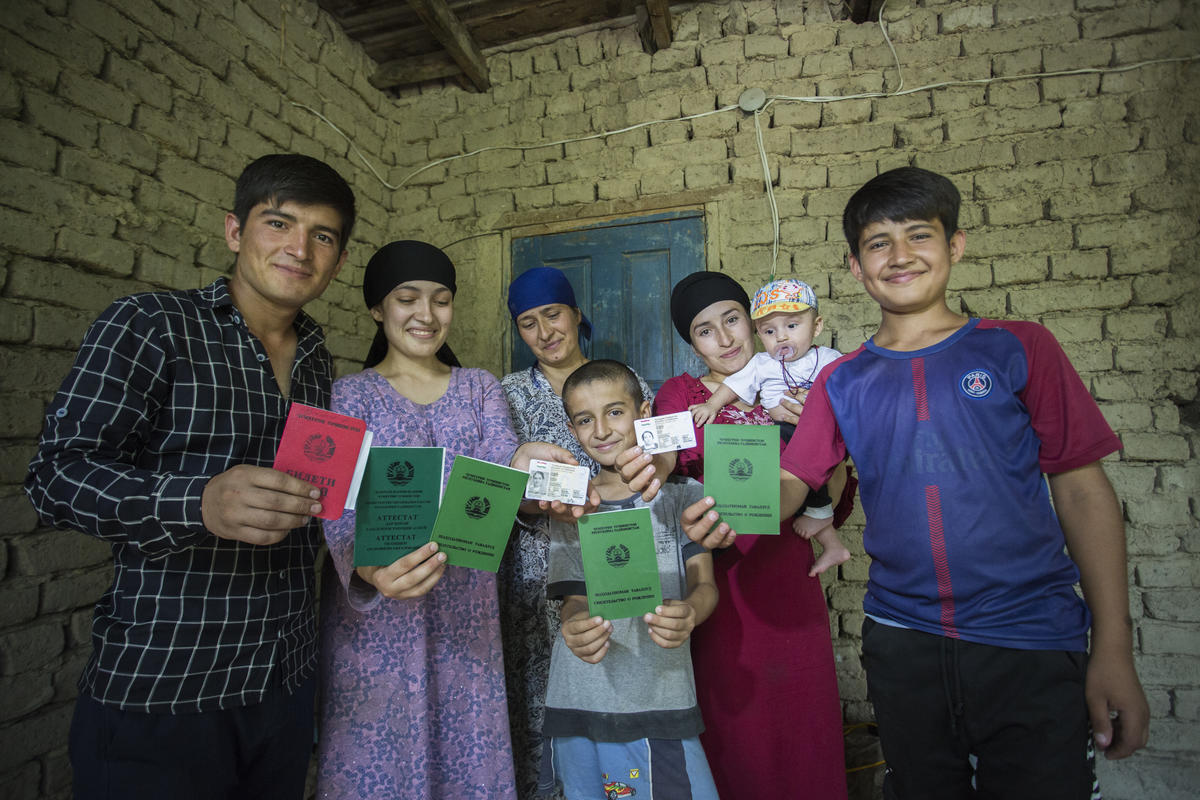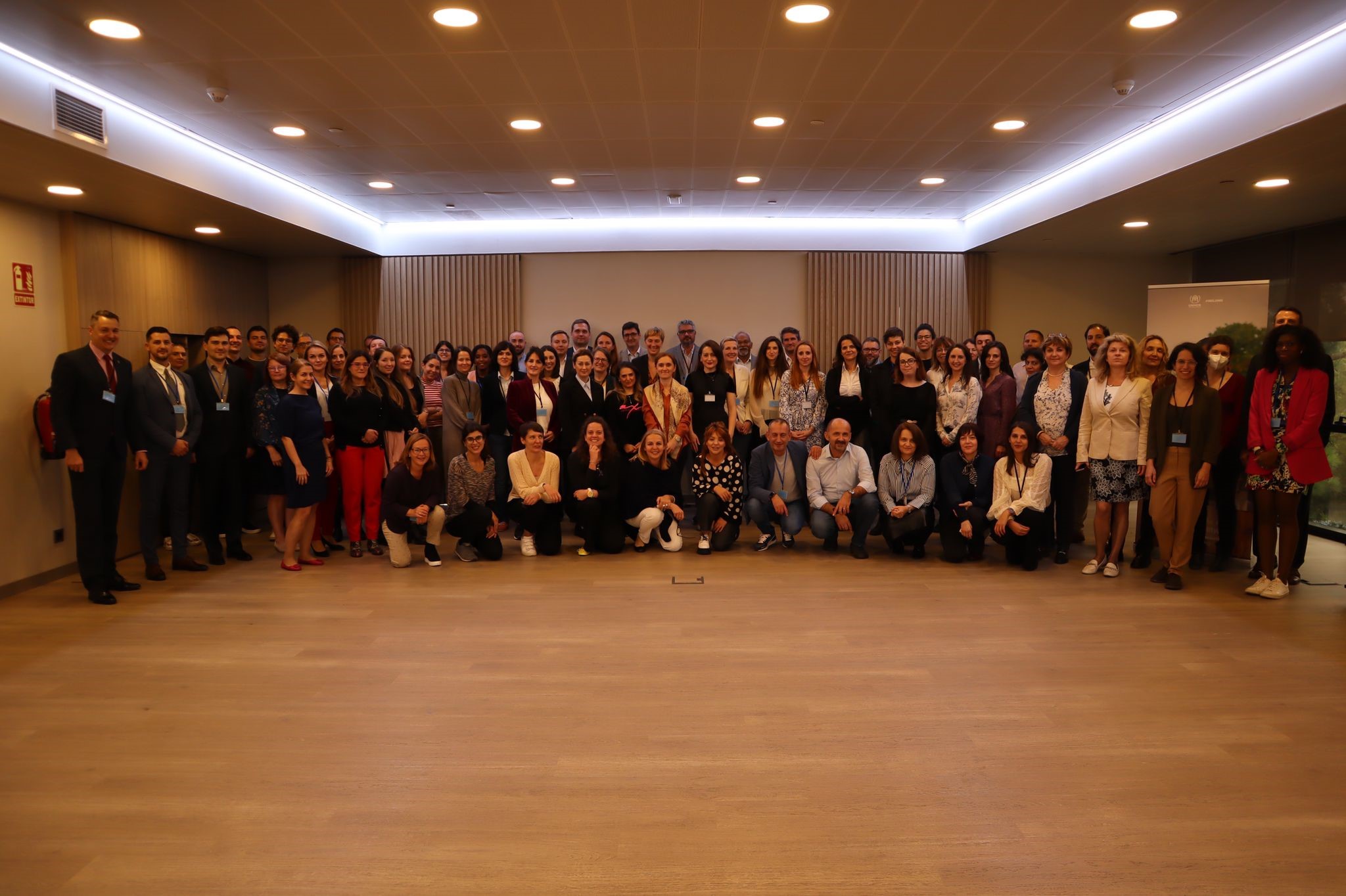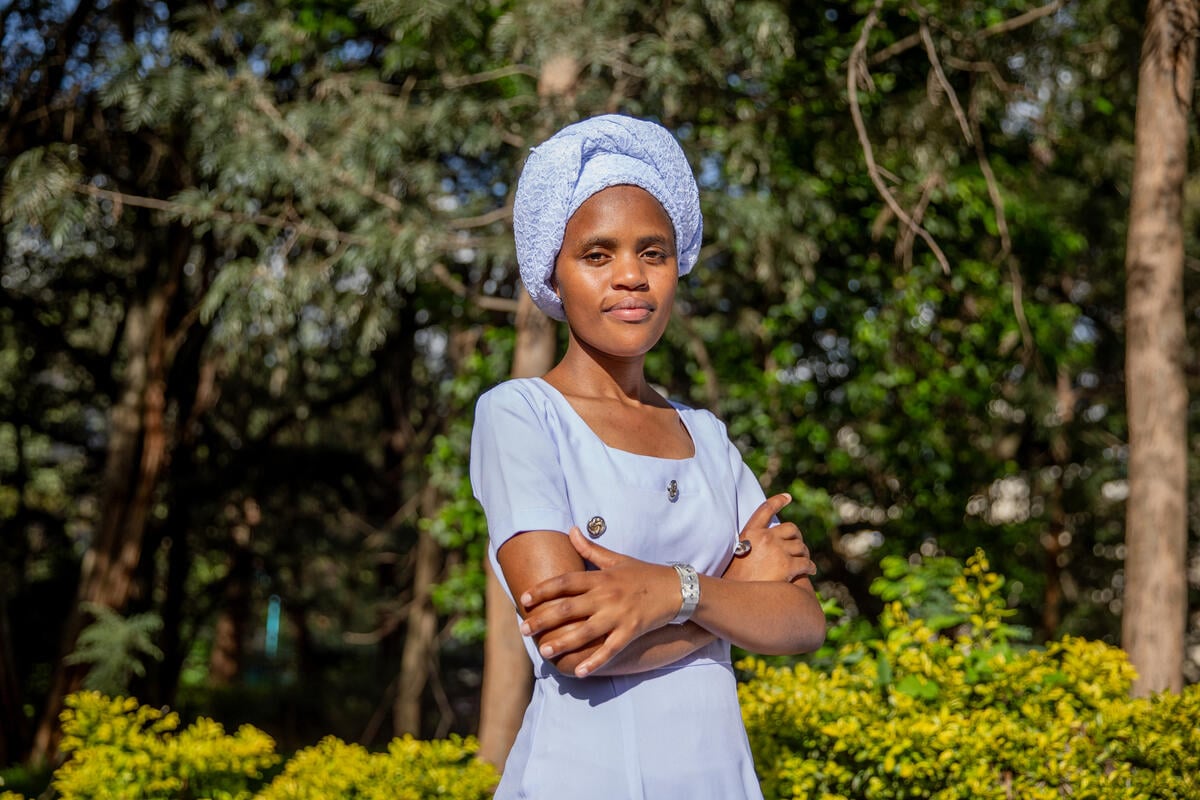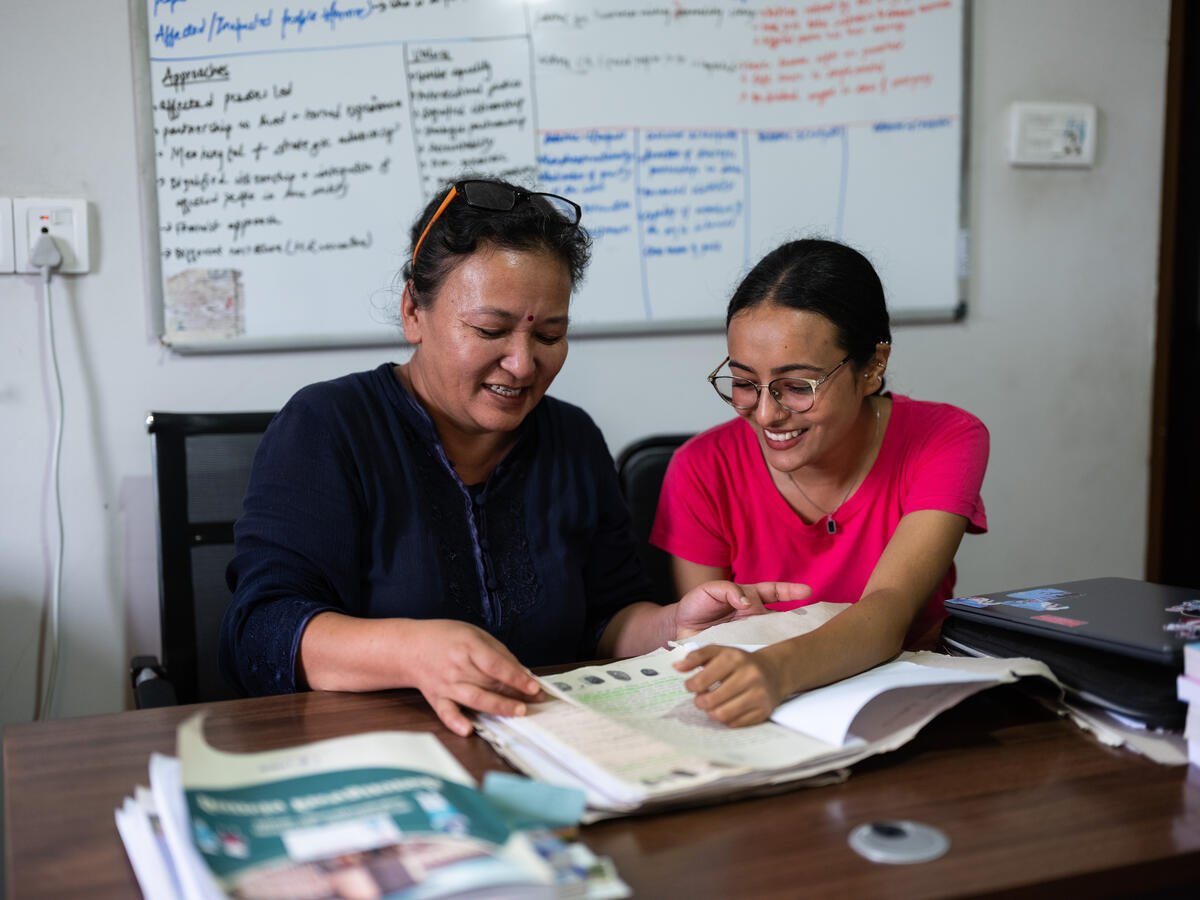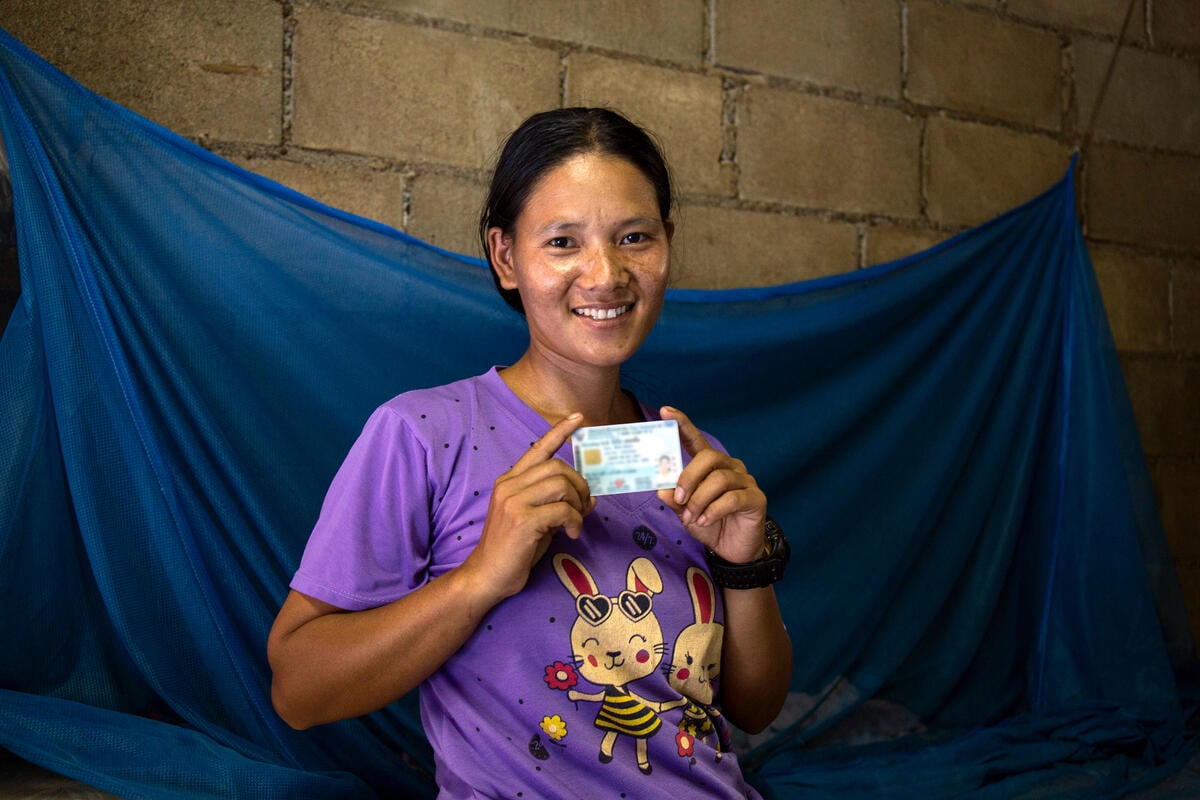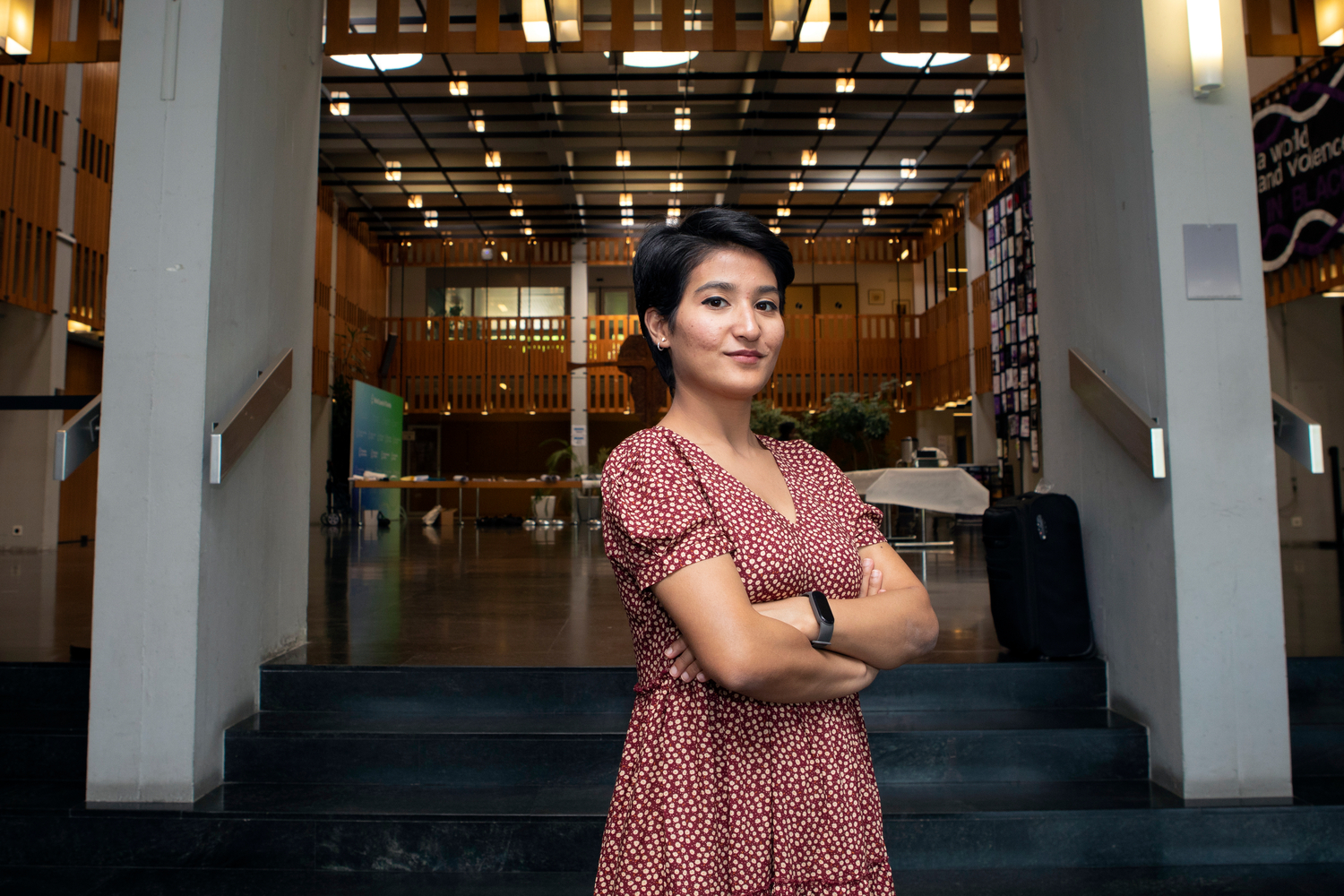UNHCR applauds Sri Lanka's move to recognise stateless Tamils
UNHCR applauds Sri Lanka's move to recognise stateless Tamils
COLOMBO, Sri Lanka, Dec 4 (UNHCR) - Thousands of stateless Tamils have ended their long struggle for recognition in Sri Lanka and registered to become citizens of a country they have called home for generations.
More than 6,000 stateless Tamils of Indian origin applied to become Sri Lankan citizens last weekend in a 10-day registration programme organised by the Ceylon Workers Congress and supported by the UN refugee agency. The exercise is being conducted in more than 50 locations across Sri Lanka and will end on Sunday.
This campaign marks the start of the end of a critical and long-standing problem for an estimated 300,000 Tamils brought to Sri Lanka since the 1820s to work on estates and who had been unable to claim Sri Lankan citizenship.
The 10-day registration programme puts into effect new legislation passed in October by the Sri Lankan parliament that allowed these stateless people and their children to receive Sri Lankan citizenship. The campaign covers both people who applied for an Indian passport under the so-called Sirimavo-Shastri Pact in 1964 but who never left Sri Lanka, as well as people who have lived their entire life without a passport or any other identification document.
UNHCR's Representative in Sri Lanka, Neill Wright, welcomed the government's initiative that provides Tamils of Indian origin with the legal protection that comes with citizenship.
"Persons without citizenship are denied some of the most basic rights and entitlements: they cannot open a bank account, own property or work for the government; they cannot obtain an identity card, a birth certificate, a marriage certificate or a passport; if they leave the country they cannot return," said Wright. "For almost 200 years, this has been the predicament of a great many Tamils of Indian origin living in Sri Lanka. The new legislation corrects this injustice."
More than 300 volunteers have given their time to support the registration programme.
During a one-day training seminar for the volunteers, many older Tamils who had been working on tea plantations for their entire lives told stories of the hardship they have endured. Many cited the law passed in October as an end to a long struggle for recognition. Many of the stateless Tamils have never known any other country than Sri Lanka and consider it their home.
"This is a great day for us. This is our home, my children and grandchildren have grown up here, gone to school, made friends and married. I no longer need to feel like a neglected, poor and sick relative, who despite the smiles is not welcome here," said an elderly Tamil woman. "Now I am able to look them in the eyes, knowing that we belong here and have our basic human rights protected by the state. I feel like a real person for the first time in my life."
In addition to protecting refugees, returnees and asylum seekers, UNHCR is also mandated to work for the reduction and elimination of statelessness around the world, in accordance with the 1954 Convention relating to the Status of Stateless Persons and the 1961 Convention on the Reduction of Statelessness. While the basic human rights of stateless persons should be respected in their country of residence, statelessness itself creates vulnerability as stateless persons hold an unequal status in their societies.

